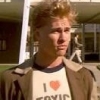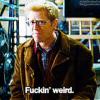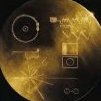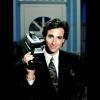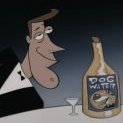Leaderboard
Popular Content
Showing content with the highest reputation on 08/01/19 in all areas
-
2 points
-
2 points
-
2 pointsIf it helps, "The Big Apple Bible" and the original Moshe Kasher Comic-con episode, both of which have 'dem boys weaving a story while laughing at themselves, and relishing friendship, is how I fell in love with Hollywood Handbook. You guys make me so happy, that I cannot express it adequately. I Just signed up as a patreon of The Flagrant Ones, in support of y'all, and because of your boost to James Adomian's new podcast.
-
2 pointsI’m so proud of chefy kevy for not taking the Wisconsin dells duckboat gig he was promised and carrying on to champion a podcast empire. He don’t give .05 a fuck and we love him for it. When will he start pushing the shit blame down the crap hill towards the next guy? I mean, he’s producing or staring in like 4 of the best podcasts available right now...
-
1 pointOnce, if my memory serves me well, my life was a banquet where every heart revealed itself, where every wine flowed... We watched:
-
1 pointBerenger is over two years older than Joey Pants. Tom was 34 in 1983 and Joe Pantoliano was 32.
-
1 pointSpeaking of blown timelines I was expecting to justify Joey Pants' villain turn in The Matrix as justified by that bad gray wig. Yet The Matrix was 16 years later. That's a long time to hold a grudge. For Tom Berenger I thought sure his role in this prepped him for The Substitute. Yet that was 13 years later so he could be out of touch with teaching. Maybe that's why he was only a substitute in 1996.
-
1 pointI don’t care how old he might have actually been, but watching people call Barenger “kid” was weird.
-
1 pointI thought the lady in the bar where they go "Tell so-and-so Eddie and the Cruisers are here" was Deborah Van Valkenburg. I looked up the timelines to see how long it was before she dumped Michael Beck and went to Michael Pare. She's not in EatC so that theory is down the drain. I guess that lady is the backup singer?
-
1 pointThe saxophonist in this film that died of a drug overdose also happens to be the saxophonist of the group who contributed to the soundtrack, John Cafferty and the Beaver Brown Band!
-
1 pointOh man, that reference to Brian Wilson just reminded me of a pretty good Canadian film from the 90s that was about Brian Wilson and his late brother (through a thin layer of fiction) - Whale Music, starring Maury Chaykin and Paul Gross and a bunch of other folks you might recognize. Plus music by the Rheostatics, one of the great bands from this country that never quite caught on in the US. It's on Youtube here: Enjoy.
-
1 pointYeah. I haven't seen the film since it came out (didn't have time to revisit it last week) but according to the wikipedia page it sounds like it was the classic situation of poor distribution and a bunch of other factors causing it to flop at the box office, but the soundtrack did well and the home video and cable markets gave it a second life. Edit to add: as someone who was a teenager in the 80s this movie fits pretty squarely in with the torrent of baby boomer nostalgia horseshit that was being released at the time, from new albums by everyone from The Moody Blues to The Monkees and films like The Big Chill. @Cameron H., apparently Roger Ebert shared your frustration with the ending, which he said spoiled an otherwise agreeable film.
-
1 pointIn the 18 years between flashbacks and then-present day, most of the band members didn't seem to age a day, but poor Joe Pantoliano got affected the worst mostly because of the gray wig that he had to wear.
-
1 pointThat was so weird. The music (for the most part) was pretty anachronistic. I guess they were trying to suggest that Eddie was ahead of his time, but it just felt really out of place. Also, I had issues with him being referred to as a “genius.” Berenger wrote the music and lyrics for their only hit, but because Eddie arranged it into a three chord, boogie he’s suddenly the innovator?
-
1 pointThe point seems to have been to steal everything from Bruce Springsteen
-
1 pointI admit I haven't finished it yet because the Dailymotion app on my TV crashed so I will watch it on my PC. However I will say that watching it after knowing they made a sequel subtitled "Eddie Lives!" makes the first one questionable.
-
1 pointI have to say, overall, I enjoyed the movie, but at the end, I couldn’t help feeling like it was a bit pointless. I’m not sure if anyone else agrees.
-
1 pointIt's revolutionary in that it managed to be deemed groundbreaking without actually doing anything new. That's a pretty neat trick.
-
1 pointAnyway, I think this is a legit great film and would have it Top 20 at least, and on my personal list it's probably going to finish in the Top 10. For all the credit Tarantino gets for his writing (clever wisecracks, memorable lines, etc.), I don't think most people realize what a masterful visual director he is. He's precise on the level of a Spielberg or Hitchcock, filmmakers that people would normally think of as great visual storytellers before they think of their scripting. One of my favorite examples is the famous long conversation between Jules and Vincent that opens the film (after the pre-credit diner scene). For example, look at just the segment that takes place inside the car: The dialogue is fun and all, but really they are just kind of bullshitting and talking about nothing. Yet to me the scene feels dramatic and propulsive. Why? Note that Tarantino changes the visual approach when the subject changes. First it's a two-shot with both actors in frame, Travolta closer to the camera. We stick with this for the entirety of the discussion about pot being legal in Amsterdam. Then notice what happens as the conversation shifts to beer and fast food: suddenly Tarantino is cutting between close-up shots of each actor's face, before pulling back to the two-shot just as this line of conversation peters out ("I didn't go into Burger King"). Then we get an angle looking up from inside the trunk at both actors as they've changed subject again, talking about what kind of guns they'll need. The visual language is telling you where the dramatic beats are. So many filmmakers that try to do this kind of chatty, hangout scene don't understand this, they just hold a single shot or just cut between faces. Tarantino has a strong sense of telling a STORY with every scene he directs, which makes a huge difference. (And yes, this strategy of changing the visual angle when the dramatic beat changes continues as they go into the building and up to Marvin's apartment.) Pulp Fiction is loaded with stuff like this, the visual language telling you something that isn't in the dialogue. Another great example from early in the film is when Marcellus is explaining his plan for what Butch should do in the boxing match: Marcellus does all the talking, but the camera holds only on Butch's face. This primes the audience for the fact that Butch is going to be an important character later (something the dialogue doesn't do) and also keeps Marcellus shrouded in mystery as to what his face looks like, enhancing the menace everyone feels from this character. It's pretty brilliant. To me there's a reason the movies with Tarantino scripts but different directors don't quite reach these heights. Finally, that speech from Jules at the end really ties the room together. I actually get emotional when he talks about "trying to be the shepherd," because the whole movie has been about that, people making moral choices to save other people's lives. Jules is the only one who does it without any obvious self-serving benefit (even Butch gets the benefit of Marcellus removing the price on his head), which is the central question in the movie: What does it mean to "be the shepherd?" I find new stuff to appreciate in this movie every time I watch it. I love a lot of Tarantino's work, but I'd still put this one on top both for its influence and its own merit.
-
1 pointWrote the boys another letter. What's nice about being old is that embarrassment can barely fuck with you anymore. Mailed it today!
-
1 point
-
1 point
-
1 pointCorker confirmed. 300 corks. It was fun to hear Moshe's perspective on the Comic-Con episode. I wonder if they will release it in full! I related to Hayes' description of his tone of voice during the Mrs. Batman joke as "afraid of his own fear." I think that may be what I always sound like.
-
1 pointi'm only 19:27 in, but if i'm not mistaken this could be a corker.
-
1 point
This leaderboard is set to Los Angeles/GMT-08:00
-
Newsletter

